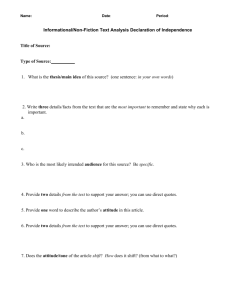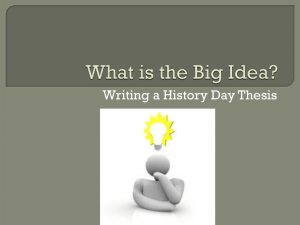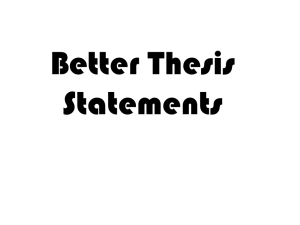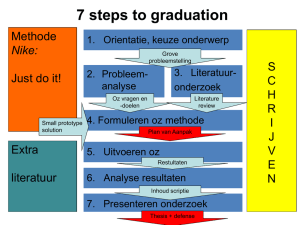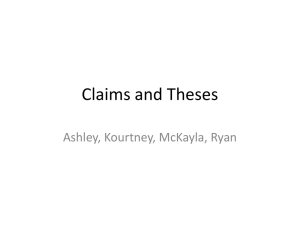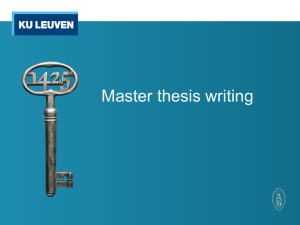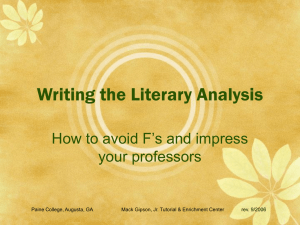Response to Literature Essay
advertisement
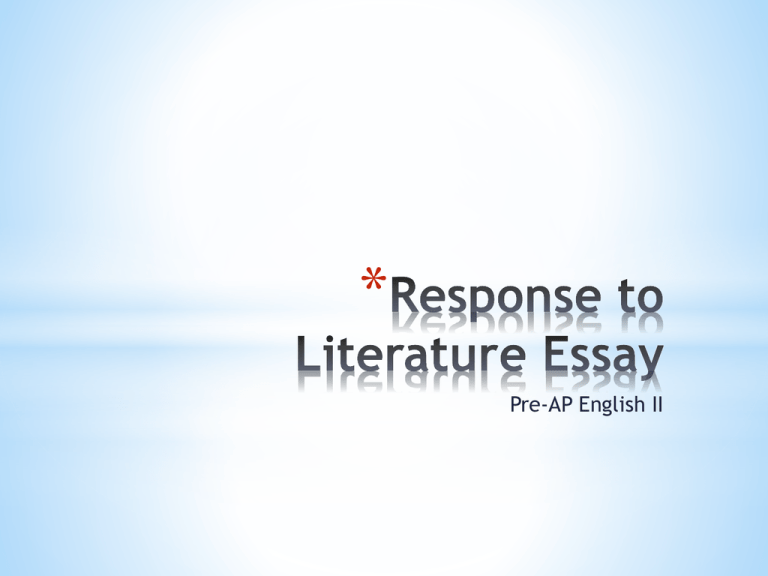
* Pre-AP English II * Have the following elements: *A Thesis Statement that expresses the main idea of the writer’s response to the author’s work * *In-depth analysis that goes beyond a summary and literal analysis to provide insight about how or why the work is effective * *Evidence from the text, including embedded quotations—quotations set into the text of your essay— and specific examples, to support the analysis * * It may include analysis of the author’s style, including a discussion of the aesthetic effects and stylistic devices that make the language powerful. * Aesthetic (adj)—relating to beauty; artistic; pleasing to the senses * * Effective sentence structure and correct spelling, grammar, and usage * Formal language (avoid slang or conversational tone) * Use transitions to move from one idea to the next * Use a variety of sentences * * Valid inferences, or interpretations about what the work means * Analysis of plot, characters, and setting, and how these elements relate to theme. * * The Specifics * * Write an interesting * Give enough opening statement. background information to cut down on confusion in your audience. * Give the name of the text and author you will be discussing in your essay. * Write your thesis statement. * * * Support and prove your * Supporting evidence * Should have in-depth * Need to be in a logical thesis statement analysis and interpretation * In other words, body paragraphs should go beyond summary and restating major events * and details order * Topics in the body of your paper should follow the order outlined in your thesis statement * Focus on work’s artistic effect * Interpret the meaning of the text you are analyzing * Address the author’s use of rhetorical devices * * Address the author’s use of irony and it’s effect on the plot/theme as a whole * Other things to write about: point of view, rhetorical questions, metaphors and similes, and imagery * In AP writing, you need to write about how the elements affect the plot/ theme of the text you are analyzing. * The theme must relate to the text, not to something general (a generic statement about life) * Ask yourself—have I addressed the meaning of the work as a whole? * Support your analysis with examples and embedded quotes from the text. * * * Restatement of thesis or main points * Explanation of significance of these points to the writer (what you have learned from reading and analyzing this text) * Effective conclusions * Restate your thesis (use different words) to remind the reader of your main point * End with a memorable final statement that clearly expresses your reaction to the literature * * * Does my introduction grab the readers’ attention? * Is my thesis clearly stated? Does it exactly express the main idea of my response? * Have I supported my thesis and main ideas with relevant evidence and well-chosen details? * * Are my quotes embedded? * Do I use transitions? * Does my analysis go beyond the literal? Have I avoided too much summary? * Does my conclusion leave readers with a clear understanding of my ideas? * * Revision means to “re-see” and make any corrections. Always rewrite for clarity. * Did I make points that are not covered in my thesis? Revise your thesis so it covers your main points. * Add examples and quotes where necessary to improve clarity. * Don’t just tell what happens; tell why it happens and what it means. * * Make sure that ideas are arranged so that they flow logically. * Reword your conclusion to reflect the ideas you have presented. * Make sure your final statement provides insight and sums up what you think about the work and why it is meaningful to you. *
